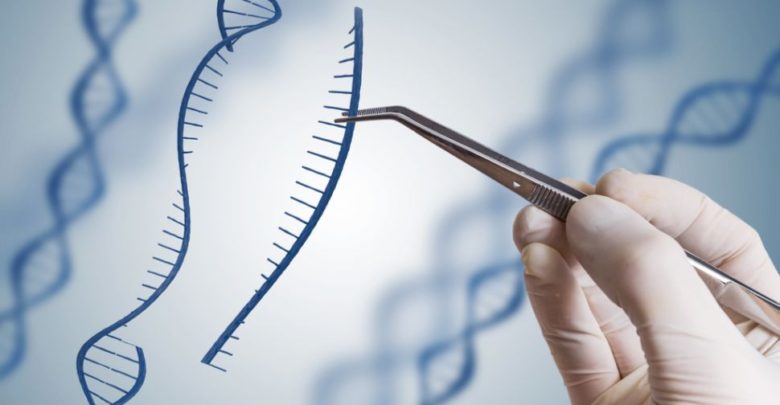HealthInternational NewsScienceTechnology
Doctors Are Trying to Use CRISPR to Fight Cancer. The 1st Trial Suggests It’s Safe.
Preliminary data from an innovative clinical trial suggests CRISPR could be safe for use in cancer therapy.

In the first clinical trial of its kind, researchers used the gene-editing tool CRISPR to fine-tune the DNA of people’s immune cells, in hopes of fighting cancer.
Now, preliminary data from the trial suggest that this technique is safe for use in cancer patients.
“This is proof that we can safely do gene editing of these cells,” study co-author Dr. Edward Stadtmauer, a professor of oncology at the University of Pennsylvania, told the Associated Press.
Still, “this treatment is not ready for prime time,” Stadtmauer added in an interview with NPR. “But it is definitely very promising.”
So far, only three patients have received the pioneering therapy — two with a blood cancer called multiple myeloma and one with sarcoma, a connective-tissue cancer, according to a statement from the University of Pennsylvania. Researchers were able to safely remove, edit and return the cells to patients’ bodies. Safety was measured in terms of side effects, and the authors found that there were no serious side effects from the treatment.
A Phase I clinical trial, like this one, usually only includes a handful of patients, according to the American Cancer Society. The small trial aims to determine how the body reacts to a new drug and whether patients experience any adverse reactions. Phase I trials don’t address whether a drug actually works to treat a condition — that question crops up in later trials. As it stands, the CRISPR study suggests that the new cancer therapy is at least safe for three people, barring more data to come.
“I’m just so excited about this,” Jennifer Doudna, a biochemist at the University of California, Berkeley, whose team first discovered and developed the CRISPR technique, told NPR. (Doudna was not involved in the current study.)
CRISPR allows scientists to cut specific snippets of DNA from a cell’s genetic code and paste in new ones if desired. Stadtmauer and his colleagues applied this technique to T cells, a type of white blood cell that attacks diseased and cancerous cells in the body. Cancer uses several tricks to slip under the T-cell radar, but using CRISPR, researchers aim to help the immune cells spot elusive tumors and take them down.
The technique resembles another cancer therapy, known as “CAR T”, which also equips immune cells with new tools to latch onto tumors but doesn’t use CRISPR, according to the National Cancer Institute.
In the new study, scientistsfirst used CRISPR to snip three genes from the immune cells’ DNA. Two of the genes contain instructions to build structures on the cell surface that had prevented the T cells from binding to tumors properly, according to the university statement. The third gene provided instructions for a protein called PD-1, a kind of “off switch” that cancer cells flip to stop immune cell attacks.
“Our use of CRISPR editing is geared toward improving the effectiveness of gene therapies, not editing a patient’s DNA,” co-author Dr. Carl June, a professor of immunotherapy at the University of Pennsylvania, said in the statement.
With these adjustments made, the researchers used a modified virus to place a new receptor on the T cells before injecting them back into patients. The new receptor should help the cells locate and attack tumors more efficiently. So far, the edited cells have survived inside patients’ bodies and have been multiplying as intended, Stadtmauer told the AP. However, it’s unclear if and when the cells will launch a lethal attack on the patients’ cancer, he added.
Two to three months after treatment, one patient’s cancer continued to worsen, as it had before the treatment, and another patient remained stable, the AP reported. The third patient received treatment too recently for her reaction to be assessed. Meanwhile, the researchers aim to recruit 15 more patients to the trial to assess both the technique’s safety and its efficacy in taking down cancer. The early safety results will be presented next month at a meeting of the American Society of Hematology in Orlando, Florida, according to the university statement.
“We’ll want more patients and a longer follow-up to really make a call that the use of CRISPR is safe. But the data are certainly encouraging,” Dr. Michel Sadelain, an immunologist at the Memorial Sloan Kettering Cancer Center in New York, told NPR. “So far, so good — but [it’s] still early.”
The study was funded in part by the biotech company Tmunity Therapeutics. Some of the study authors and the University of Pennsylvania have a financial stake in this company, the AP reported.
SOURCE: LIVE SCIENCE




